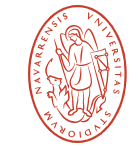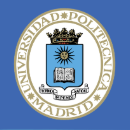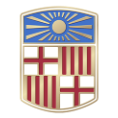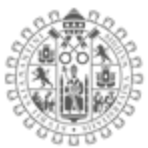Detailed introduction of the University of the Balearic Islands:
Introduction and Overview
Geographical location: Located in the Balearic Islands, Spain, with the capital Palma located on Mallorca Island. The islands are a famous tourist destination in Europe.
Student size: In 2022-2023, there are 15,789 students, including 11,926 undergraduates, 1,479 masters, and 930 doctoral students.
History and establishment time
The university's history dates back to 1483, when King Ferdinand II of Aragon authorized the creation of the Llull School in Palma, named after the philosopher and writer Ramon Llull. In 1835, the school was closed due to heated debate, and students from the Balearic Islands could only study in Cervera in mainland Spain and Barcelona. In 1949, with the support of the University of Barcelona, the Llull School reopened to offer courses in philosophy and language and literature. In 1972, the Faculty of Science and the Faculty of Arts were added, which were affiliated to the University of Barcelona and the Autonomous University of Barcelona. In March 1978, the government issued a decree to integrate the Institute of Ljubljana into the University of Palma. In 1985, the school passed the construction charter and was officially renamed the University of the Balearic Islands. In 1998, new campuses were opened in Ibiza and Alaior, Menorca.
School Strength
Teaching Quality: Focus on improving teaching quality and provide students with high-quality education in various ways. For example, in the teaching of tourism majors, combined with the rich local tourism resources, provide students with practical opportunities so that students can better master professional knowledge and skills.
Faculty: It has a high-quality faculty, including many experts and scholars with rich experience and profound academic attainments in their respective fields, providing students with high-quality teaching and guidance.
Research Strength: It has outstanding performance in scientific research and is a well-known research institution at home and abroad. It has achieved remarkable results in the fields of marine science, tourism management, cultural research, etc., and has made important contributions to the development of related fields locally and globally.
Institutional Nature
Public University.
Educational Philosophy
Always taking students as the center of the teaching plan, providing multi-functional teaching training and high-quality research, and is committed to cultivating students' multidisciplinary capabilities to make them the pillars of future society. Focusing on the combination of theory and practice, encouraging students to actively participate in scientific research and social practice activities, and improving students' comprehensive quality and innovation ability.
Key laboratories and disciplines
Key disciplines: Tourism is one of its strengths. In 2018/2019, it was rated as the first Spanish university in the tourism undergraduate category by the Spanish local media. In addition, medicine, psychology, economics, law, education and other disciplines also have a high level of teaching and research, and have a certain influence in Spain and internationally.
Key laboratories: It has a number of research centers and laboratories related to disciplines, such as the Marine Science Research Center and the Tourism Sustainable Development Research Center, which provide a good platform and conditions for teachers and students to carry out scientific research.
Department Settings
The school has 9 departments, including the Department of Economics and Business, the Department of Education, the Department of Law, the Department of Medicine, the Department of Nursing and Physiotherapy, the Department of Philosophy and Art, the Department of Psychology, the Department of Science and the Department of Tourism. In addition, there is also a higher polytechnic school, which offers majors such as technical architecture, computer engineering, technical engineering, telecommunications engineering, professional telematics, industrial engineering, professional industrial electronics and mathematics.
Ranking
In the 2025 Times Higher Education World University Rankings, it is in the 801-1000 range. Among them, social sciences ranked 601-800, life sciences ranked 501-600, arts and humanities ranked 401-500, business and economics ranked 601-800, clinical and health ranked 601-800, computer science ranked 801-1000, engineering ranked 801-1000, psychology ranked 401-500, and physical science ranked 501-600.
Expense
Tuition fees vary depending on the major and degree type. Undergraduates generally pay around 680-1200 euros per year, and masters pay around 800-1500 euros per year.
Campus environment
Campus distribution: The main campus is located outside the city of Palma. There are also campuses in the center of Palma, Ibiza, and Menorca. The campus covers an area of nearly 100 hectares, of which 52 hectares will become part of a nature reserve according to the upcoming construction plan.
Campus facilities: The campus has modern architectural style and complete facilities, including teaching buildings, libraries, laboratories, gymnasiums, student dormitories, restaurants, etc., providing students with good learning and living conditions. The campus is surrounded by a beautiful environment and is adjacent to the Tramuntana Mountains, which was listed as a World Heritage Site by UNESCO in 2010.
Cultural atmosphere: The school has a multicultural environment. Students use English, Catalan and Spanish in their studies and life, which helps to cultivate students' cross-cultural communication skills and international perspectives.
-

University of Navarra
-

Autonomous University of Madrid
-

Polytechnic University of Catalonia
-

CEU University of San Pablo
-

Technical University of Madrid
-

University of Lleida
-

University of Barcelona
-

University of Oviedo
-

University of Valladolid
-

University of Salamanca
-

Mesoamerican University
-

Istmo University
-

Mariano Galvez University of Guatemala
-

Regional University of Guatemala
-

Galileo University
-

Francisco Marroquín University
-

Rafael Landívar University
-

University of the Valley of Guatemala
-

University of San Carlos of Guatemala
-

Technological Institute of Tlaxcala Plateau
-

Golfo University
-

Technological University of South Sonora
-

Technological University of Huejotzingo
-

Tizimín Institute of Technology
-

Chilpancingo Institute of Technology

